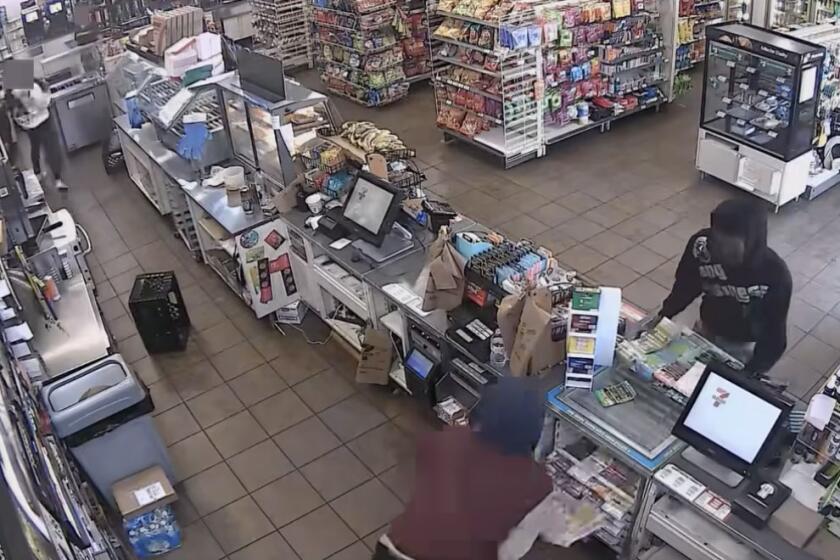Panel Seeks to Curb False Confessions
A blue ribbon commission studying reform of California’s criminal justice system recommended Tuesday that the state adopt a law mandating electronic recording of all jailhouse interrogations.
If an officer fails to make an audiotape, the law should require that the jury be instructed to view the defendant’s statement with caution, the California Commission on the Fair Administration of Justice said.
The commission also urged California law enforcement agencies to videotape all custodial interrogations of felony suspects, but did not recommend making it a requirement only because the cost would be prohibitive, said Gerald F. Uelmen, a Santa Clara University law professor who is the commission’s executive director.
Rather, the commission, headed by former California Atty. Gen. John K. Van de Kamp, recommended that the Legislature provide grants aiding police agencies that want to implement videotaping.
The report emphasized that false confessions have been identified as the second most frequent cause of wrongful convictions.
“Although it may seem surprising that factually innocent persons would falsely confess to the commission of serious crimes, the research provides ample evidence that this phenomenon occurs with greater frequency than widely assumed,” the commission said.
“The research suggests that false confessions are often extracted from the most vulnerable suspects,” including juveniles, the mentally disabled and the mentally ill, the report stated. However, the commission cautioned that “even fully competent and rational persons may be victimized by coercive interrogation techniques.”
The commission cited June testimony from two wrongfully convicted men: Christopher Ochoa, who was tried in Austin, Texas, and Harold Hall, who was tried in Los Angeles. Each man said he doubted he would have been convicted if his interrogation had been recorded and a judge and jury had been able to see the coercive techniques used against him.
Ochoa told the commission that he had admitted to participating in a murder and agreed to testify against another man only after he had been threatened with the death penalty. Ochoa and Hall were later exonerated. Hall has a damage suit pending in Los Angeles federal court against local officials.
The report emphasized that taped interrogations provided considerable benefits to law enforcement, including protection against claims of misconduct.
The recommendations were adopted unanimously by 18 members of the commission, with only one member, Los Angeles County Sheriff Lee Baca, abstaining. Baca’s spokesman, Steve Whitmore, said: “The sheriff believes this deserves further study and a wider range of consultation before action is taken.”
Those who voted in favor included California Atty. Gen. Bill Lockyer, Los Angeles Police Chief William J. Bratton, three district attorneys, a federal judge from Sacramento and Los Angeles County Public Defender Michael Judge.
Two law school professors who have studied false confessions praised the report’s recommendations as a boon to suspects and law enforcement.
“I am ecstatic that such a broad-based commission has recommended the electronic recording of custodial interrogations in serious felony cases. I am very pleased that the commission has recognized that police-induced false confessions can destroy lives,” said Northwestern University law professor Steven A. Drizin, co-author of a study on false confessions cited by the commission.
Drizin said he wished the panel had made a stronger recommendation on the consequences of failing to record an interrogation. “I would have liked to have seen a recommendation that there be a presumption that the interrogation is inadmissible where there has been an inexcusable failure to record,” Drizin said. “But the use of a jury instruction is a good compromise.”
“I think the recommended rule is exactly right,” said University of Michigan Law School professor Samuel R. Gross, co-author of a study on wrongful convictions cited by the commission. “I hope that the sanction” of a warning to the jury “is enough to get prosecutors and police departments to speed the transition to a time when recording interrogations is as routine as wearing sterile gloves in an operating room,” Gross said.
More to Read
Start your day right
Sign up for Essential California for news, features and recommendations from the L.A. Times and beyond in your inbox six days a week.
You may occasionally receive promotional content from the Los Angeles Times.






